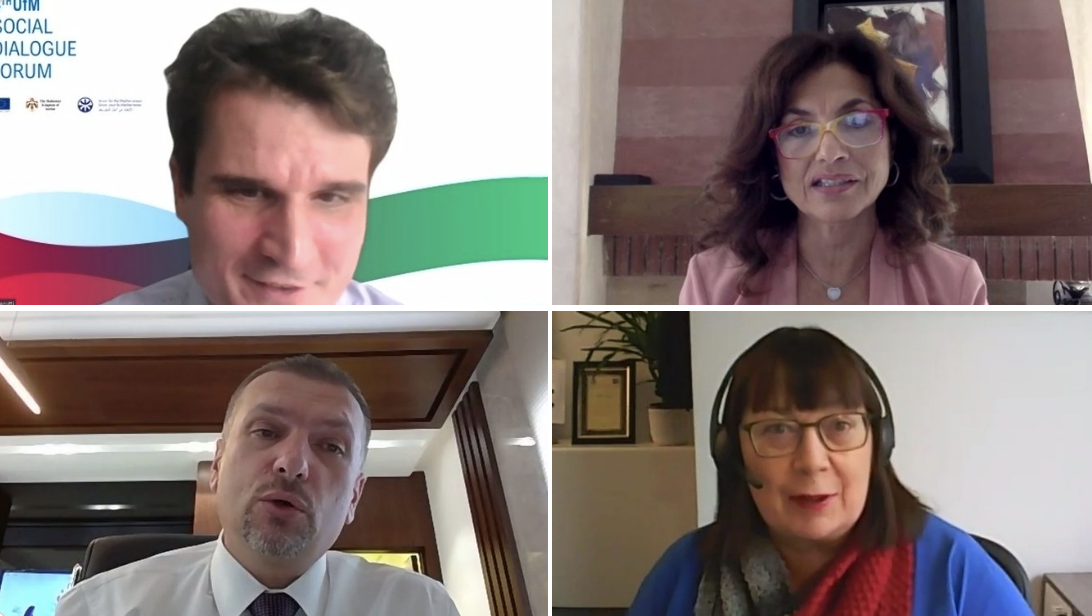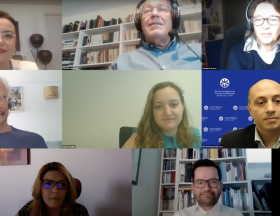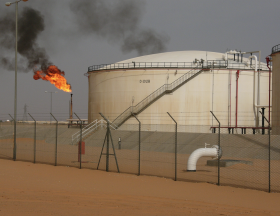The social partners of the two shores of the Mediterranean have met virtually on 6-7 October for the fourth UfM social dialogue forum. This edition of the UfM social dialogue forum has been a mix of taking stock of past activities of the European and South Mediterranean social partners in the context of UfM, and of looking forward to the next steps of their cooperation in the context of the UfM paving the way for their future joint contribution to the 2022 UfM Labour and Employment Ministers Meeting.
This fourth edition has also been an important opportunity for the social partners of both regions to e-meet and talk about their recent experiences, notably in relation with the management of the economic and social consequences of Covid at national level and in both regions, and with a view to improving the management of migratory flows between both regions in a way that is mutually beneficial for sending and receiving countries and guaranteeing in any case the protection of people’s fundamental rights.
The European Union is integrated and functions as a region with common institutions and capacities to undertake joint policies with a common budget. This crisis has led Europe to undertake a common recovery plan, which is an historic achievement for the European Union. In many countries the response to this crisis has been marked by a stronger than usual cooperation between national governments and social partners in tripartite settings as well as very dynamic collective bargaining in sectors and companies, notably for the design and implementation of short-time working schemes. This has played a key role in hitherto avoiding massive job losses in Europe. But the outlook for the next months is worrisome, with the possibility for many companies, in particular SMEs, to simply disappear, and for many workers to lose their jobs or work less intensively if the Covid outbreak would continue to impede the proper functioning of Europe’s economies, over and beyond what the fiscal stimulus that is under way will have the capacity to cushion.
The Southern Mediterranean countries are in a different situation. Without common institutions or with weak regional institutions, the response to the crisis has by and large been organised by governments country by country. The role played by social partners in the South Mediterranean countries is diversified and often not enough structured. The spread of Covid in the South Mediterranean region has overall been less pronounced than in Europe, but the economic and social impact is nonetheless a key concern for South Mediterranean social partners, notably at a time of growing unemployment when social security institutions have limited capacity and are faced with the continuous challenge of informality. Part of the discussions in this forum touched on the way in which the available EU funding instruments for the South Mediterranean region could be mobilised usefully in response to the crisis. Importantly, for the next years, the South Mediterranean social partners are about to launch a second phase of their Solid project. This was welcomed by the European social partners as this project has the potential to strengthen the role of Southern social partners in the growing number of participating countries and getting them involved with governments dialogue and negotiation.
A shared objective for social partners in both regions is to encourage companies to fully recover their capacities as quickly as possible, ensuring a safe return to work for workers and helping workers and enterprises to survive the crisis. The social partners
consider that the prevention, and if not possible, an effective management of a second wave will amongst others depend on the involvement of social partners by national governments in the design and implementation of the necessary measures. It will also depend on reaching agreements between the social partners on the necessary adaptation of the work organisation with a strong attention to occupational safety and health. Finally, the crisis has shown the importance of having effective social security nets, and performing public health services: women often worked on the frontline and further progress is needed to reduce the gender employment and pay gaps.
While access to liquidity remains a key concern for many companies in both regions, we need to progressively move from a focus on the very short-term survival to the crisis, to improving and mobilising our innovation and longer-term growth potential. The European Commission has recently presented its skills agenda for Europe, which rightly prioritises upskilling and reskilling of the adult workforce at a time when labour markets needs are evolving rapidly and a massive improvement in digital skills is needed by many workers for them to be able to use the technology they need to master to design and sell new products and services.
In terms of migrations, the priority going forward is for both regions to communicate and cooperate well to ensure that individual countries in both regions have access to the skills and talents they need, recognising and making full use of the potential skills that migrations from third countries have to offer. The UfM and the European Commission have an important role to play in providing the right information and statistics and to support well-balanced and mutually beneficial bilateral approaches between national governments and social partners of both regions. An important consideration to make migrations mutually beneficial for both regions as well as within each of the two regions is to promote circular migrations through regular pathways.
Migration debates between the two regions should take into account the brain drain from Southern countries to Europe. The available data support the evidence that an increasing share of population outflows from the South Mediterranean region to the EU is composed by people with tertiary education. It is reassuring to observe at the same time the increasing educational attainments amongst the South Mediterranean population, which is a predictor of both further migration and reduced concern about brain drain. The key question is not about brain drain but about how to restore a positive dynamic between human capital creation and potential growth leading to job creation. This requires more targeted education and training policies but, above all, improvement in the quality of public and market institutions.
The impact of migration on the sending countries is not necessarily negative, as remittances – both financial and cultural – are large in the South Mediterranean region and, de facto, migration works as a safety valve for mounting pressure, led by high unemployment, especially amongst youths. Youths comprise about half the population in the southern Mediterranean and play a hugely important role as catalysts for development and change. Their empowerment and integration into the job market and economy is key to both regions’ strategic interest, not only to safeguard against violent extremism and limit illegal immigration, but also to encourage the desired value-added brain circulation within and between both regions. It is also important to ensure an appropriate balance in the consideration of security measures, respecting individual and migration related rights and freedoms such as the EU Fundamental Rights Charter or the Geneva Convention.
Cooperation with the South Mediterranean neighbourhood countries on innovation and societal challenges can support Europe’s development policy efforts. Many of these challenges could be effectively addressed through joint Euro-Mediterranean bi-regional initiatives and actions utilising Science, Technology and Innovation, to drive the economy of Southern Mediterranean Countries and contribute to bring about inclusive and sustainable growth in both regions.
The Social Dialogue Forum has further underlined the crucial role played by the continuous bi-and tripartite social dialogue, including collective bargaining to address this COVID crisis, but also the further challenges of democracy, peace, economic growth and social justice, or climate change. Social partners in both regions are committed to improving the cooperation between the two shores of the Mediterranean with realism.
Finally, this 7 October marks the 13th World Day for Decent Work (WDDW). Sadly, in some places, the Covid-19 has severely undermined employment prospects and livelihoods, curtailed human rights in general and workers rights and situation in particular, hindering economic and social recovery. The ILO Decent Work Agenda is the balanced and integrated programmatic approach to pursue the objectives of full and productive employment and decent work, including the need to respect the ILO core labour standards such as freedom of association and the effective recognition of the right to collective bargaining.










